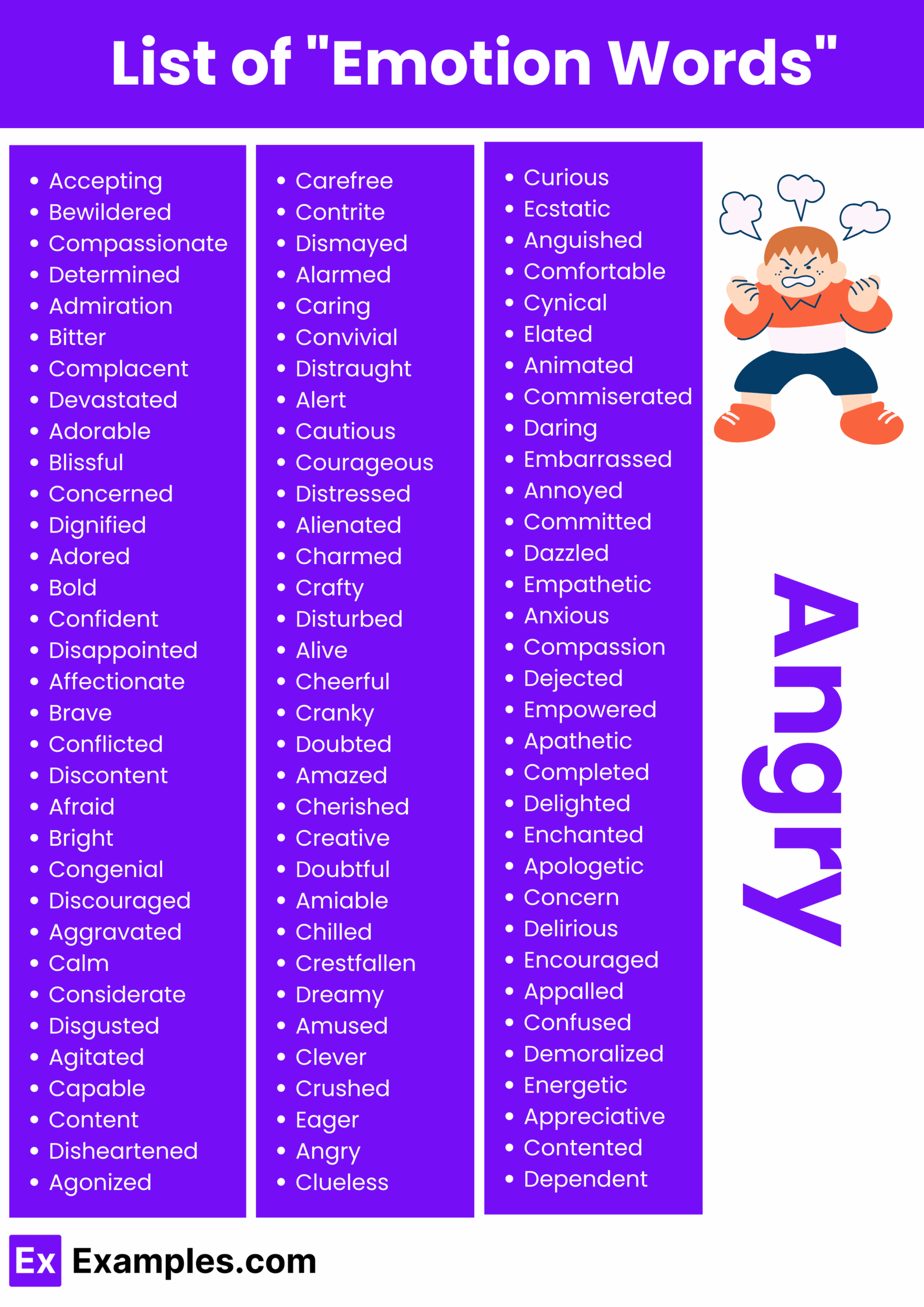Emotions play a significant role in our daily lives, influencing our thoughts, behaviors, and interactions with others. Understanding and being able to express our emotions is essential for our mental well-being. One way to enhance our emotional intelligence is by expanding our emotional vocabulary. By having a wide range of words to describe how we feel, we can better communicate our emotions and navigate through various situations effectively.
Below is a list of emotional vocabulary words that can help you better articulate your feelings and deepen your emotional awareness:
Emotional Vocabulary List
- Happy
- Sad
- Angry
- Excited
- Grateful
- Anxious
- Confused
- Lonely
- Stressed
- Content
Each of these words represents a different emotional state that we may experience at various points in our lives. By being able to identify and label these emotions, we can better understand ourselves and communicate effectively with others.
Expanding your emotional vocabulary can also help you cope with difficult situations and manage your emotions more effectively. For example, instead of simply saying that you feel “bad,” you can use words like “frustrated” or “disappointed” to pinpoint the exact emotion you are experiencing. This level of specificity can help you address the root cause of your feelings and take appropriate action to address them.
Furthermore, being able to express your emotions accurately can improve your relationships with others. When you can clearly communicate how you feel, you are more likely to be understood and supported by those around you. This can lead to stronger connections and a greater sense of emotional well-being.
In conclusion, expanding your emotional vocabulary is a valuable tool for enhancing your emotional intelligence and overall well-being. By being able to accurately identify and express your emotions, you can navigate through life’s challenges with greater ease and build healthier relationships with others. Take the time to explore and incorporate new emotional words into your vocabulary, and watch as your emotional awareness and understanding grow.
